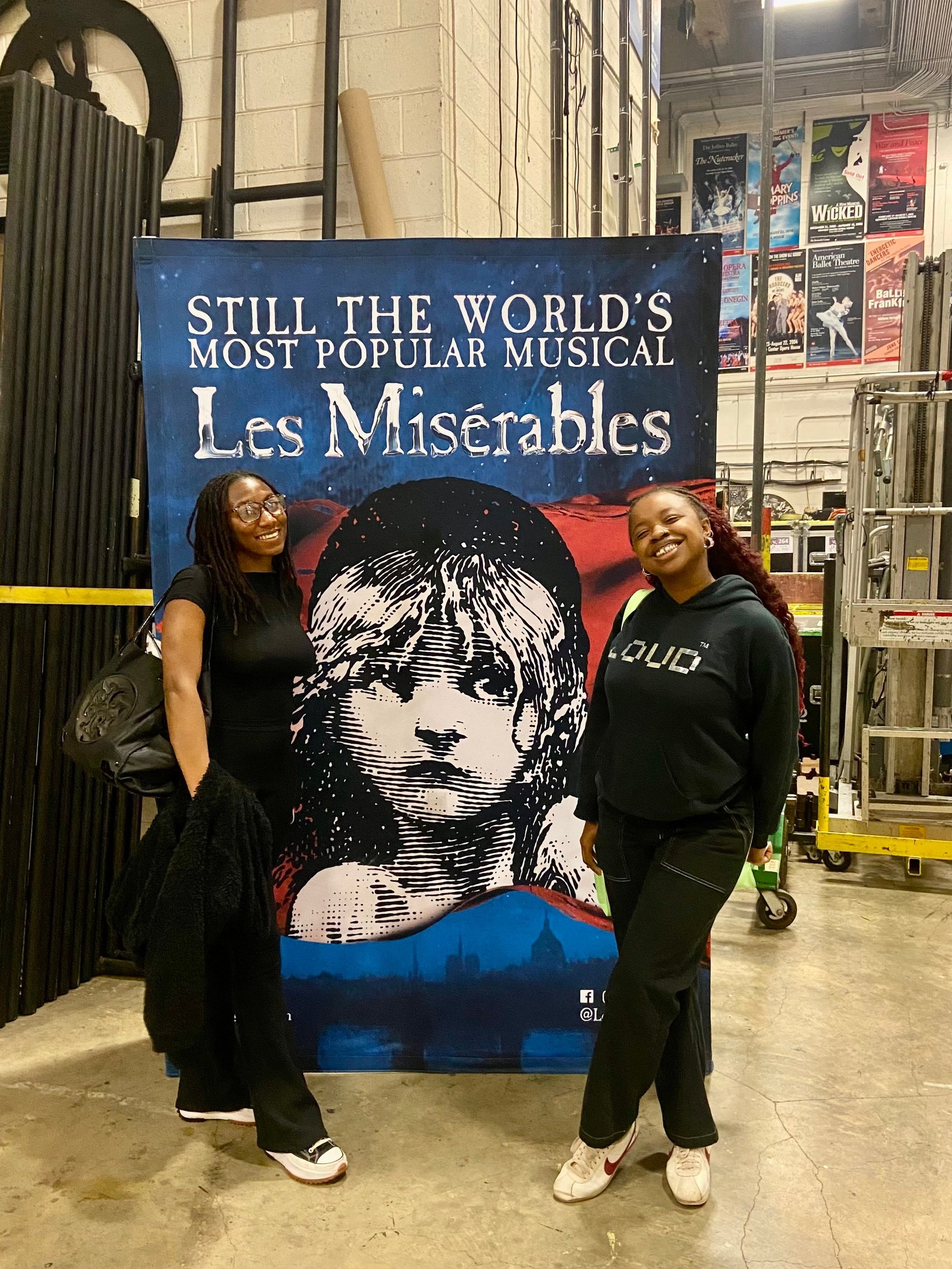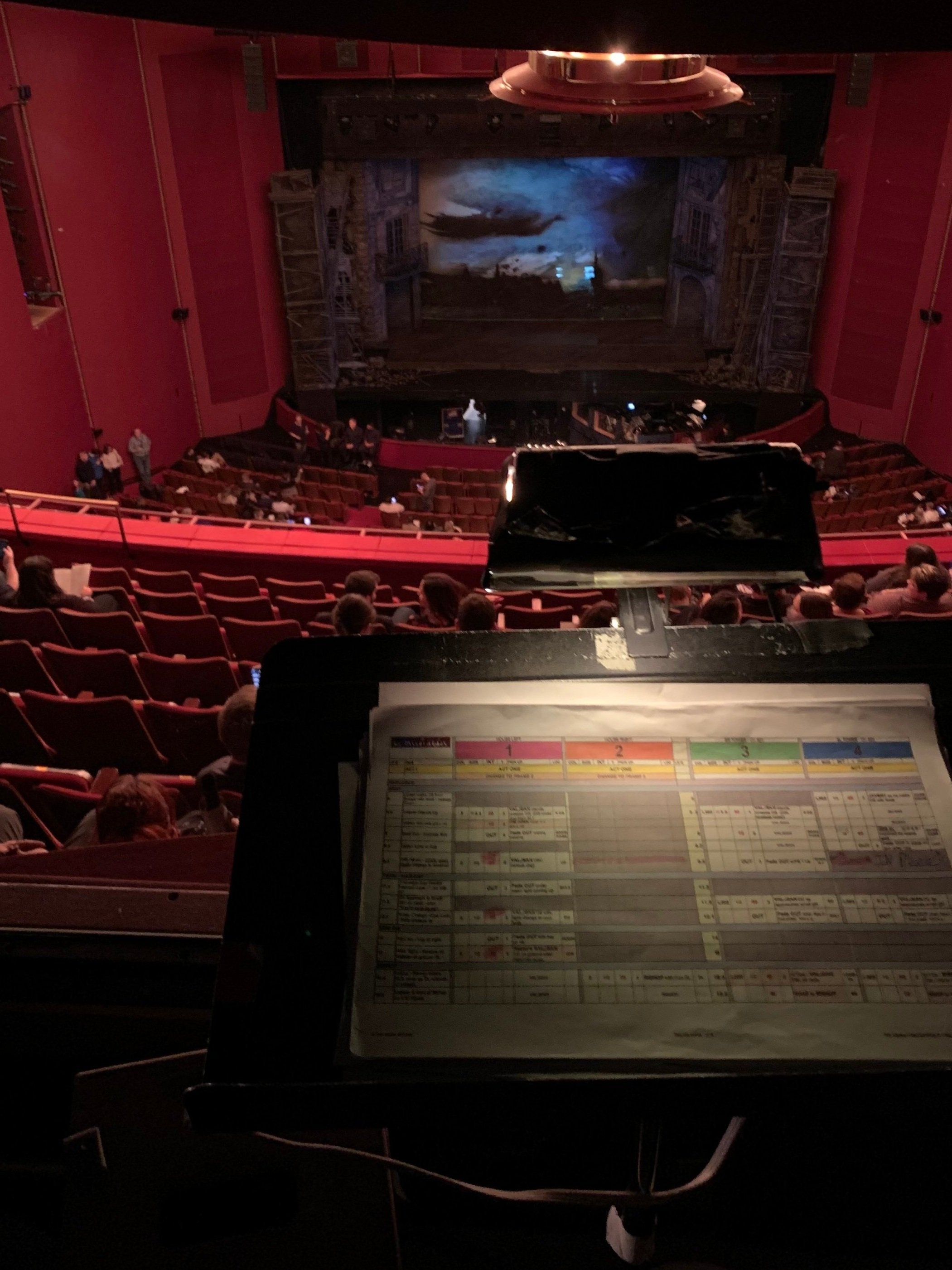The Black Theatre Coalition Takes on Les Misérables at the Kennedy Center
Photo: (L) Imani Nyame, (R) Brianna Naadira McAdoo / Photo Credit: Imani Nyame & Brianna Naadira McAdoo
By Imani Nyame / Fellow Writer
Few things are more thrilling than when Broadway leaves New York and lands in your city. Touring productions provide people, from all over, the opportunity to engage with high commercial theater close to home. They also encourage accessibility which can only promote further equity and diversity in theater spaces. In a world where the majority of theatergoers are White – we need that. But what about the people working behind the scenes? From directors to stage hands, head electricians to hair and wigs, the ratio of white vs nonwhite people working in high commercial theater is beyond disproportionate. This isn’t because we aren’t here and capable; we are and in high numbers. We simply don’t have access.
The non-profit organization, Black Theatre Coalition, is working to change that. Through their emerging apprenticeship program, they’re creating paid opportunities for young black creatives to learn alongside industry production professionals working in their cities. The primary goal of BTC is to remove the “illusion of inclusion” from theater spaces. As liberal as theater may seem, in regards to its main purpose to mirror society and advocate for change, the reality is that most theater producers and owners are white. Meaning, the majority of the plays being produced are not employing persons of color on, or backstage. I was fortunately provided the opportunity to participate in a program, this past April, working with the Les Misérables touring company at the John F. Kennedy Center where it made its US debut in 1986.
My initial introduction to ’Les Mis’ was through the 2012 film adaptation (though mention the film to director James Powell and he'll likely scoff at its inferiority to the live version.) This being my first time seeing the esteemed musical live, I was excited that the apprenticeship offered backstage passes, too. Some other perks included getting to shadow resident director Richard Barth. Shadowing him, I observed how he tenderly passed out notes to the cast on things he noticed might need some work like lighting, acting choices or blocking. I worked with many other departments including automations, stage management, and hair and wigs. I observed the show with follow-spot operators (Bradley and Lauren), who have the best seats in the house at the top of the theater. I also sat in the pit with the orchestra for part of the show.
I’ve been doing theater for the majority of my life — from high school to college to regional theater. And all of these experiences have been invaluable. Working on a show of this caliber and bearing witness to the many moving parts of this well-oiled machine has enhanced my perspective on what it takes to produce this level of theater. From the intense schedules, to being estranged from the comfort of immediate friends and family. All members of the ‘Les Mis’ company sacrifice their personal lives to keep the show going. They all have a role to play, be it the stagehand, props person, or Jean Valjean, himself. So many different positions and possibilities for employment exist in theater. It was interesting to learn that many key company members had not completed their education, but were mentored by people who believed in them and opened doors to opportunities.
As the Black Theatre Coalition continues to grow, it's my hope that they allow me to grow alongside them. Through these types of opportunities, I hope to continue learning and developing the skills necessary to realize my own dreams as an artist and storyteller. And to promote diversity and equity in all the workspaces I inhabit. I encourage students and young theater lovers, alike, interested in developing a career in theater to look into the Black Theatre Coalition and what they have to offer.
Imani Nyame is a recent Howard University graduate of the Chadwick Boseman College of Fine Arts with a concentration in Theater Arts. She is a multifaceted artist and analytical observer of the arts.



